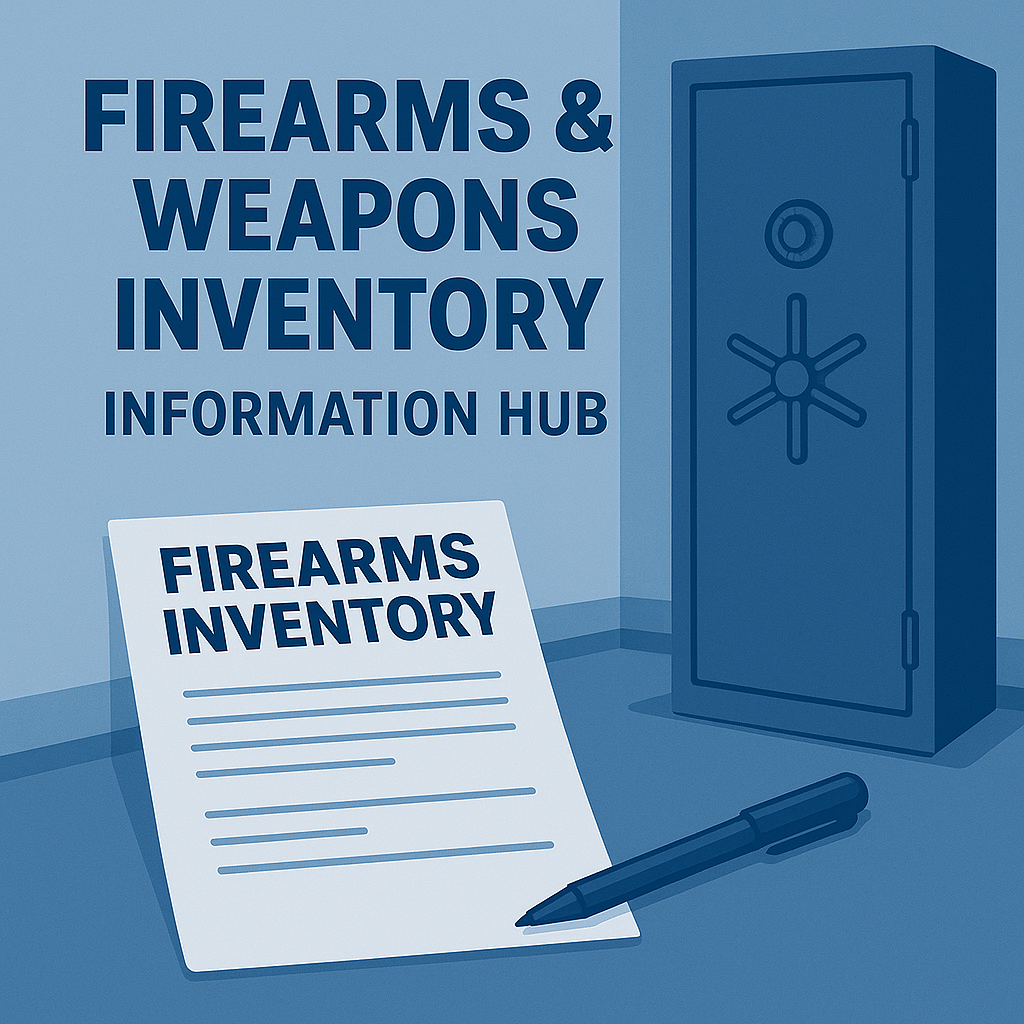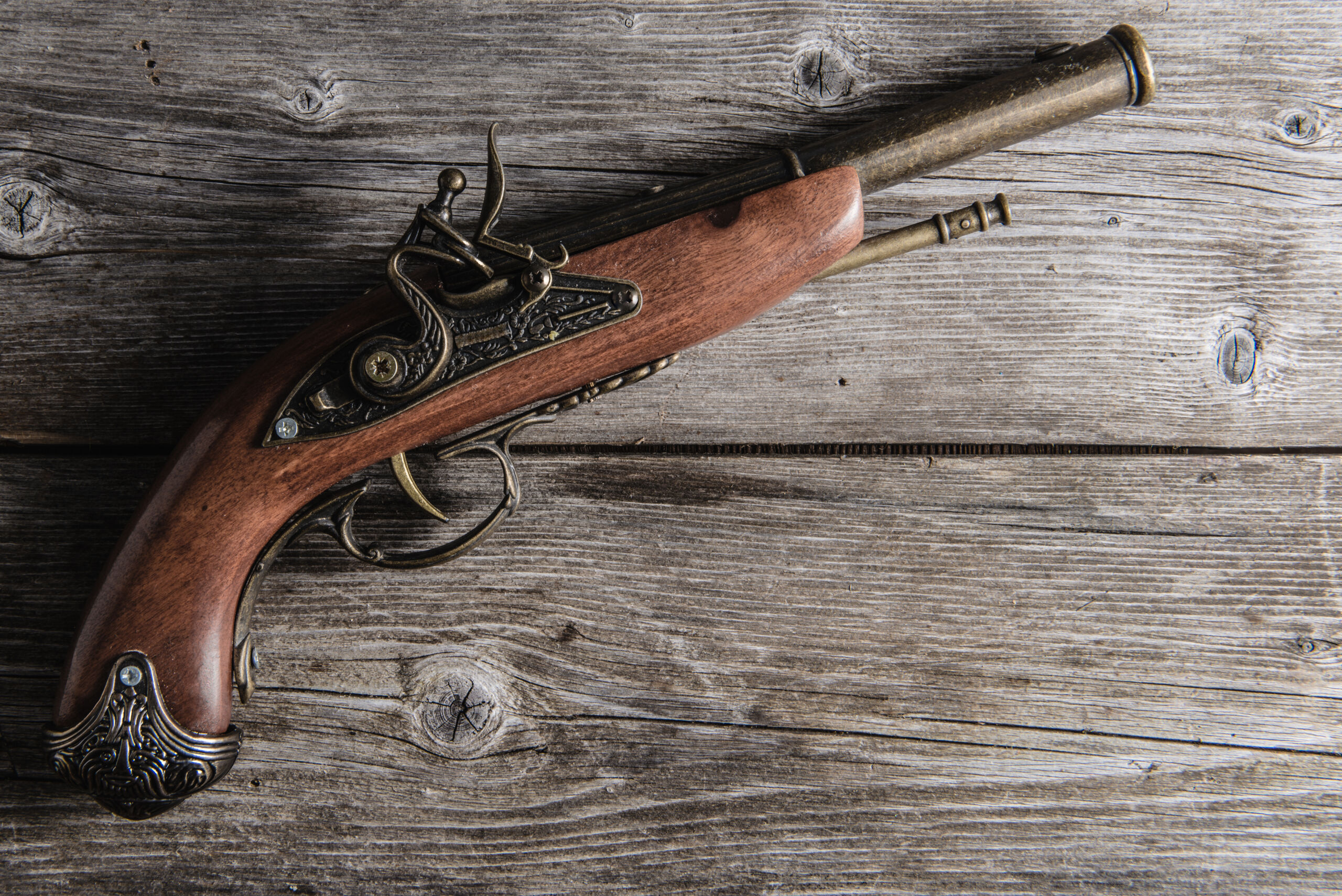Responsible Planning for Firearms & Other Weapons
The Firearms & Weapons Hub
When a loved one passes away, their firearms, knives, or other weapons must be handled legally and responsibly. Whether you’re an executor, a family member, or someone planning ahead, understanding the rules and best practices for firearm and weapon inheritance is critical.
This hub is designed to provide clarity, guidance, and step-by-step resources for handling firearms, ammunition, and other weapons in an estate.

Key Things To Know
Handling firearms and weapons in an estate requires knowledge of federal and state laws. Here’s what to keep in mind:
- Firearm laws vary by state: While federal law sets baseline regulations, each state has its own laws for firearm inheritance, background checks, and transfers.
- Certain firearms require extra steps to transfer: Items regulated under the National Firearms Act (NFA), like suppressors, short-barreled rifles, and automatic weapons, require ATF approval and additional paperwork.
- Executors must follow legal procedures: If you’re responsible for an estate with firearms, you cannot distribute them until verifying the legal requirements in the deceased’s state of residence.
- A gun trust may simplify inheritance: A properly structured gun trust allows firearms, especially NFA-regulated ones, to be legally transferred to heirs without unnecessary delays or legal risks.
- Safe storage is critical: Until ownership is legally transferred, firearms should be securely stored in a locked safe or placed with a licensed firearms dealer (FFL) to prevent unauthorized access.
- Selling or transferring firearms requires compliance: Private sales, inheritance, and dealer transactions each have different legal requirements. Some states require all firearm transfers, even between family member, to go through a licensed dealer.
Frequently Asked Questions
Firearms and weapons in an estate come with specific legal challenges. Below are some common questions and answers to help guide the process.
How To Handle Firearms In An Estate
If You’re Planning Ahead
- Consider setting up a gun trust to simplify legal transfers.
- Keep an updated inventory of all firearms in your estate plan.
- Specify heirs who can legally inherit firearms and confirm they meet state requirements.
- Work with an estate attorney familiar with firearm laws to prevent legal complications.
If You’ve Inherited Firearms
- Do not take possession until you verify state and federal laws.
- Check if any firearms require ATF approval before transfer.
- Work with an FFL dealer or attorney to handle the legal transfer.
- Ensure all firearms are securely stored until ownership is legally transferred.
If You Need to Transfer or Sell Firearms
- Use a licensed FFL dealer to ensure legal compliance.
- Verify state laws on private sales before transferring ownership.
- Consider donating unwanted firearms to law enforcement or firearm safety programs.
- If a firearm is illegal to own or transfer, seek guidance from an estate attorney.
Checklists, Guides, & Resources
Buried in Work offers a variety of checklists, guides, and other resources. Below are some of the most popular ones related to this information hub.
Find A Service Provider Near You
Need professional assistance? Use our directories to find trusted service providers near you who specialize in estate planning, end-of-life organization, and related services.
Articles
Disclaimer: The information provided on this website and by Buried in Work is for general informational purposes only and should not be considered legal advice. Please consult with a qualified attorney or subject matter expert for advice specific to your situation.


